Theaterbrief aus Großbritannien (4) − The Edinburgh Festival Fringe 2014
A Small Sign of Hope
by Andrew Haydon
27 August 2014. The Edinburgh Festival Fringe is big. Very big. In theory it's the "Fringe" of the Edinburgh International Festival, but these days that's a complete misnomer. For almost the whole of August, Edinburgh is almost all Fringe and nothing else. (Well, not strictly true: incongruously the city also plays host to the Royal Military Tattoo selling out to the tune of 215,800 tickets.) This year, the Fringe reportedly broke the two-million mark for number-of-tickets sold for 49,497 performances of 3,193 shows.
The Edinburgh bubble
Walking round the city it feels as if almost every building has been pressed into service as a temporary venue, with each of its rooms being stuffed from morning to night with a succession of everything from amateur comics to internationally acclaimed touring companies. As such, even with the massed ranks of critics, bloggers, and student reviewers, all racing flat-out to see – well, 70 shows isn't uncommon – well, full coverage is impossible, and an individual impression of how a particular Fringe looked is always going to be a fraction of the whole. There's always a nagging worry for journalists that the absolute best, most life-changing show in town was reviewed by no-one and played to audiences of one or two for the whole month.
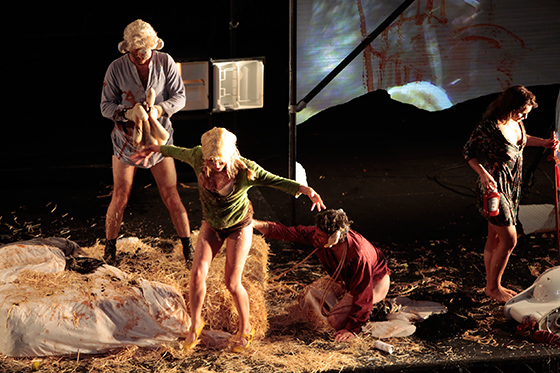 A discovery at this year's Fringe "Looking for Paul" performed by Wunderbaum
A discovery at this year's Fringe "Looking for Paul" performed by Wunderbaum
© Steven A. Gunther
However, thanks to the profusion, there is always much that is great that is discovered. This year felt slightly strange in that while there was a surprising amount of work that was excellent, really, stand-out excellent, because nearly all of it came from established artists, it was harder to get quite as excited that it was excellent. "Excellent artist makes another excellent show" is not so much of a headline.
Something else which felt different about Edinburgh was the way that social media has now popped what used to be referred to as the "Edinburgh bubble". Whereas in the past, everyone involved with the Fringe would steadily sink into a kind of narcissistic torpor, reading and writing only about themselves and their contemporaries; now, thanks to smart-phones and the most horrific summer of news imaginable, conversations were more often about Gaza, ISIS, Ukraine and US racism than the latest bit of puppet theatre.
The capacity of violence
It was a feeling that bled over into much of the best work:
Chris Goode's "Men in The Cities" is a one-man performance, in which Goode himself relates the lives of several men going about their lives in a British city, centring around reactions to both the suicide of a young gay man, the beheading on a public street of Drummer Lee Rigby, and Chris himself, trying to write the piece while back at his elderly father's home. But somehow the whole feels far larger than this: a eulogy for those trapped inside what Goode describes as "patriarchy's giant self-harm machine". The piece also asks not only about the capacity for violence in general, but also asked the question what does a pacifist left-liberal do about fighting for revolution.
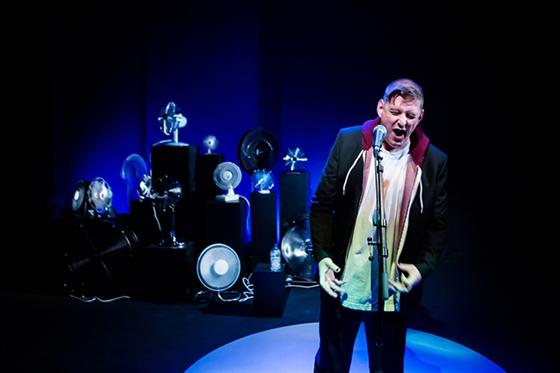 Chris Goode in "Men in the Cities" © Richard Davenport
Chris Goode in "Men in the Cities" © Richard Davenport
Chris Thorpe's "Confirmation" is also a solo performance, where Thorpe – in a completely different style to his Theatertreffen-Stückemarkt-selected "There Has Possibly Been an Incident" – examines the theory of Confirmation Bias. The theory suggests that humanity tends to see and understand the world in a way which confirms its pre-existing beliefs, and a consequent inability to change one another's minds. Really, though, the piece is about the existence of the far-right, and about Chris's inability to comprehend their viewpoint or them his. It goes further, looking into Holocaust denial. And ends up drawing some bleak conclusions about the possibility of redemption or change.
Chris Brett Bailey's "This is How We Die" is the third of what became known as "The Chris Trilogy" – a third solo show by a guy called Chris, all dealing with different sides of the fractured mess of the modern male psyche. Bailey's piece, like Goode's, is as much a poem as anything, a kind of "Howl" for the 9/11 generation. In an hour-long monologue, Bailey narrates us through machine-gun-fire-delivered attacks on language, political correctness, North American culture (Bailey is Canadian but based in the UK), into a surreal Hunter S. Thompson-like road-movie narrative; or, imagine Patti Smith reading Georges Bataille's "The Story of The Eye", all building toward a glorious ten minute finale in which all language is abandoned in favour of a wall of electric guitar noise and violins.
Portrait of current UK life
It is absolutely indicative of the state of the UK economy that most of the work at the Fringe is solo work. But perhaps it's not simply economics that's driving this. 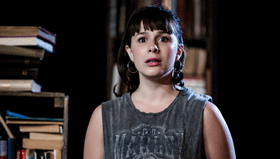 Rosie Wyatt in "Spine" by Clara Brennan
Rosie Wyatt in "Spine" by Clara Brennan
© Richard Davenport
The biggest discovery of a new talent at this year's Fringe was the play "Nothing" which was produced by a group of recent graduates who had had the time and resources to develop Lulu Raczka's play into a striking ensemble piece, and yet, the play itself is still eight intercut monologues, cleverly here turned into a live game in which all the company have learnt several of the pieces and where each can interrupt each other at will, making every performance different. "Nothing" again offers a bleak portrait of current UK life this time from the eyes of a horrified younger generation about to enter the desolate job and housing markets for the first time.
But amongst the best work there were also glimmers of hope. If the Chris Trilogy explored the desolate state of men in the C21st, then Clara Brennan's "Spine" (again solo, performed by the brilliant Rosie Wyatt) offered a fierce working class, left-wing, feminist attack on the current Tory coalition's closure of libraries and war on the poorer half of society, and gave the Fringe perhaps its most quotable slogan: "Less twat, more cunt" [slang terms for female genitalia: the former implying being silly, the latter implying being a bit more objectionable].
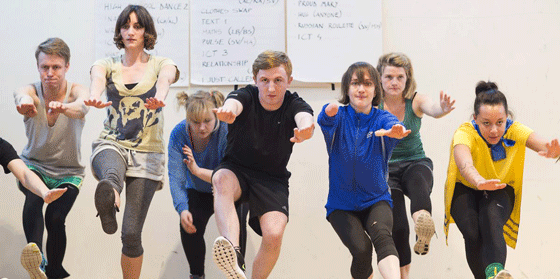 "A Series of Increasingly Impossible Acts" by Secret Theatre
"A Series of Increasingly Impossible Acts" by Secret Theatre
© Helen Maybanks / arts depotAlso at the Fringe was the Secret Theatre company's Show Five, "A Series of Increasingly Impossible Acts". As I suggested in my piece on the company here back in March: "the ensemble continues to go from strength to strength, creating ever more exciting and unpredictable work". "A Series of Increasingly Impossible Acts" seems like the strongest vindication of this claim yet. Already a popular hit in London, this charming, radical, tender, violent thing, in which one of the ensemble, picked at random each night, attempt to perform the titular Impossible Acts, and a series of improvised scenes, which seemed with generosity to tell us all something about life, love, camaraderie, and perhaps ultimately about the strength of the ensemble itself.
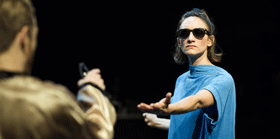 "Show 6" performed by Secret Theatre
"Show 6" performed by Secret Theatre
© Helen Maybanks / art depotSecret Theatre also opened Mark Ravenhill's "Show Six" – an oblique, science fiction play: imagine Dr. Who meets Oedipus Rex – in the new writing company Paines Plough's new "Roundabout" space. A touring in-the-round space, which, here in Edinburgh, was set up in the Summerhall venue (where "Nothing" was also playing). Paines Plough themselves also opened a new version of Duncan Macmillan's "Lungs" (Atmen), another Macmillan play "Every Brilliant Thing", about a son's struggle with his mother's depression; Dennis Kelly's play for young people, "Our Teacher's a Troll"; and the Fringe First Award-winning new play "The Initiate" by Alexandra Wood, about a Somali taxi-driver and the gaps between appearance and reality.
The Place To Be
Indeed, at this year's Fringe Summerhall seemed to completely dominate the best-of theatre coverage. It does seem that every year a single venue seems to coalesce in the collective imagination as The Place To Be. In previous years it has been Forest Fringe (where "This is How We Die" was seen), Northern Stage ("Confirmation"), and, a while ago now, the Traverse Theatre ("Men in the Cities", "Lippy", "Kim Noble") or the Underbelly ("Spine"). But this year was definitely Summerhall's year. Also hosting, off-site, Poland's Song of the Goat company, and on-site work from established companies like Paines Plough and Ridiculusmus, who brought a pair of intriguingly titled, imaginatively staged pieces: "The Eradication of Schizophrenia in Western Lapland" and "The World Mouse Plague"; and the Belgian company Ontroend Goed's latest offering, "Sirens"; Summerhall seemed to effortlessly out-international the international festival, and at the same time offered perhaps the most new discoveries with the site-specific, sonic terrorism of "KlangHaus" from the Norwich-based Neutrinos; magician Geoff Sobelle's non-magic show "The Object Lesson"; and perhaps the other big discovery of the Fringe (apparently, I annoyingly missed it) "Looking for Paul", by the Dutch company Wunderbaum.
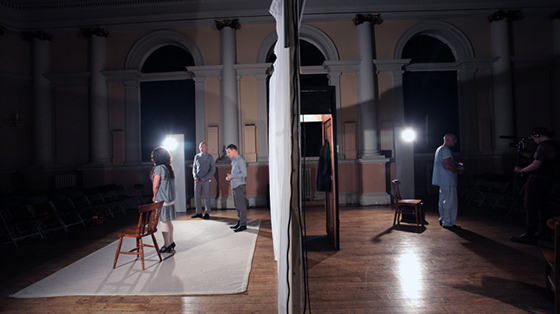 "The Eradication of Schizophrenia in Western Lapland" by Riduculusmus
"The Eradication of Schizophrenia in Western Lapland" by Riduculusmus
© Jemima Yong
Mental illness and the ongoing catastrophe of capitalism
Obviously this list is entirely subjective. At this year's Fringe, to me, it seemed that the main themes of the work being presented were mental illness, the ongoing catastrophe of capitalism, suicide and violence. I'm sure there were equally a load of twee puppet shows about love and loss and fairy tales. Maybe I subconsciously avoided them on purpose. It didn't feel like any major massive shifts in formal innovation happened, although perhaps smaller subtler movements/evolutions in the way that people are thinking about writing and style were in evidence.
I'm sure there are names I'm going to be kicking myself for missing off even this brief snapshot of the Fringe as soon as I file the piece, but in a way, that's the nature of the Fringe: a kind of endless, impossible rush, where there always seems to be one more show you 'need' to get to, and somehow you can never do quite enough. Perhaps that's what underscores the number of shows about futility, hopelessness and failure; on the other hand, the fact that everyone keeps trying seems like a small sign of hope.
All English texts on nachtkritik.de are listed here.
 Andrew Haydon is a freelance theatre critic (FT, Guardian, Time Out, etc.). He was also the editor of the CultureWars theatre section between 2000-2010. Then he went to Berlin for a while. Now he's back in UK. He wrote for nachtkritik.de in march 2014 about the Secret Theatre of Lyric Hammersmith London.
Andrew Haydon is a freelance theatre critic (FT, Guardian, Time Out, etc.). He was also the editor of the CultureWars theatre section between 2000-2010. Then he went to Berlin for a while. Now he's back in UK. He wrote for nachtkritik.de in march 2014 about the Secret Theatre of Lyric Hammersmith London.
http://postcardsgods.blogspot.co.uk/
Für Horizonterweiterung
Der Blick über den eigenen Tellerrand hinaus ist uns wichtig. Wir möchten auch in Zukunft über relevante Entwicklungen und Ereignisse in anderen Ländern schreiben. Unterstützen Sie unsere internationale Theaterberichterstattung.
meldungen >
- 26. April 2024 Toshiki Okada übernimmt Leitungspositionen in Tokio
- 26. April 2024 Pro Quote Hamburg kritisiert Thalia Theater Hamburg
- 25. April 2024 Staatsoperette Dresden: Matthias Reichwald wird Leitender Regisseur
- 24. April 2024 Deutscher Tanzpreis 2024 für Sasha Waltz
- 24. April 2024 O.E.-Hasse-Preis 2024 an Antonia Siems
- 23. April 2024 Darmstadt: Neuer Leiter für Schauspielsparte
- 22. April 2024 Weimar: Intendanz-Trio leitet ab 2025 das Nationaltheater
- 22. April 2024 Jens Harzer wechselt 2025 nach Berlin



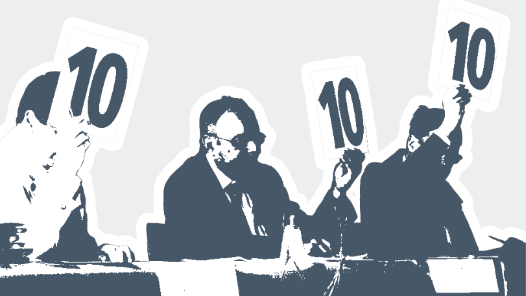
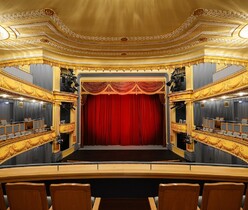
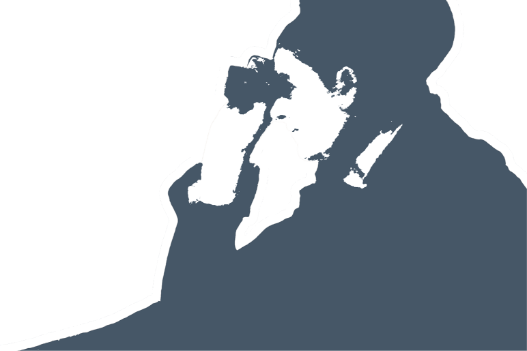
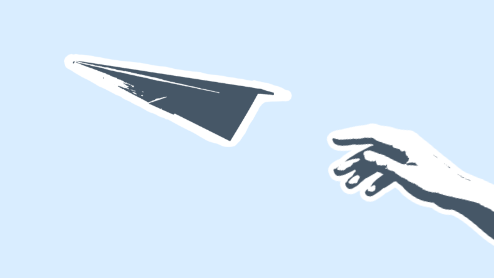
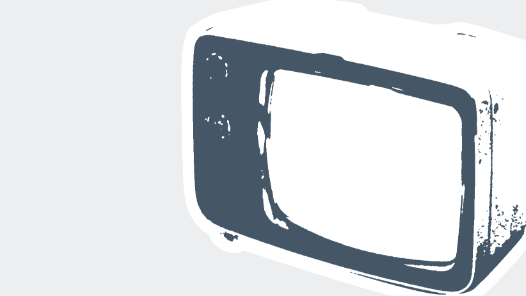
neueste kommentare >